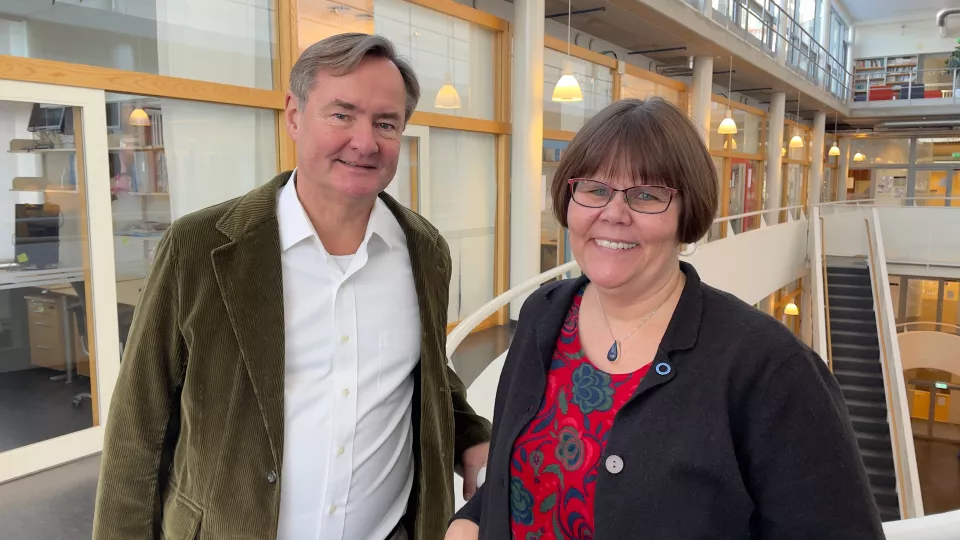Coordinator Allan Vaag and Vice Coordinator Lena Eliasson are new leaders since the beginning of the year and coordinate the activities at the centre in close collaboration. The strategic research area EXODIAB (Excellence of Diabetes Research) is led by researchers at Lund University Diabetes Centre (LUDC) in collaboration with diabetes researchers at Uppsala University. The long-term goal is to prevent and cure diabetes as well as improve the treatment of the disease and its complications.
Diabetes researcher Allan Vaag leads a research group in translational diabetes research at LUDC that focuses on pathophysiology of diabetes and the influence of early life factors on the development of type 2 diabetes. Vice Coordinator Lena Eliasson has been active as a researcher at LUDC and the strategic research area since the start. She leads a research group that studies the mechanisms behind insulin secretion. The long-term goal of her group is to develop new treatments that can improve insulin secretion in diabetes.
”I have a strong focus on basic research, whereas Allan Vaag focuses more on translational and clinical research. This allows us to recognise the needs of all research groups, and gives us the opportunity to ensure that our research efforts are applicable in the clinic and that developments in the clinic are brought back to the lab for further investigations. Diabetes is a complex disease that can lead to different types of complications, which is why we would like to broaden our scope by increasing our focus on obesity and cardiovascular diseases," says Lena Eliasson, professor of experimental diabetes research at Lund University.
Strengthened collaborations
Allan Vaag is Professor of endocrinology at Lund University and Chief Physician at Skåne University Hospital. He is also an affiliated professor at the University of Copenhagen and affiliated with Steno Diabetes Center Copenhagen. In his new role as coordinator, he will work for a strengthened collaboration between Lund University Diabetes Centre and academic institutions in Denmark.
“Our researchers are already collaborating with diabetes researchers in Denmark on various projects, and we want to continue to do so in parallel with finding new forms for collaboration. Diabetes researchers in Sweden and Denmark have different areas of expertise and can learn a lot from each other. The goal of our research in Sweden is to prevent diabetes and develop more accurate treatments of patients, and we need to expand our collaborations to achieve this," says Allan Vaag.
Allan Vaag and Lena Eliasson succeed Maria F. Gomez and Hindrik Mulder.
